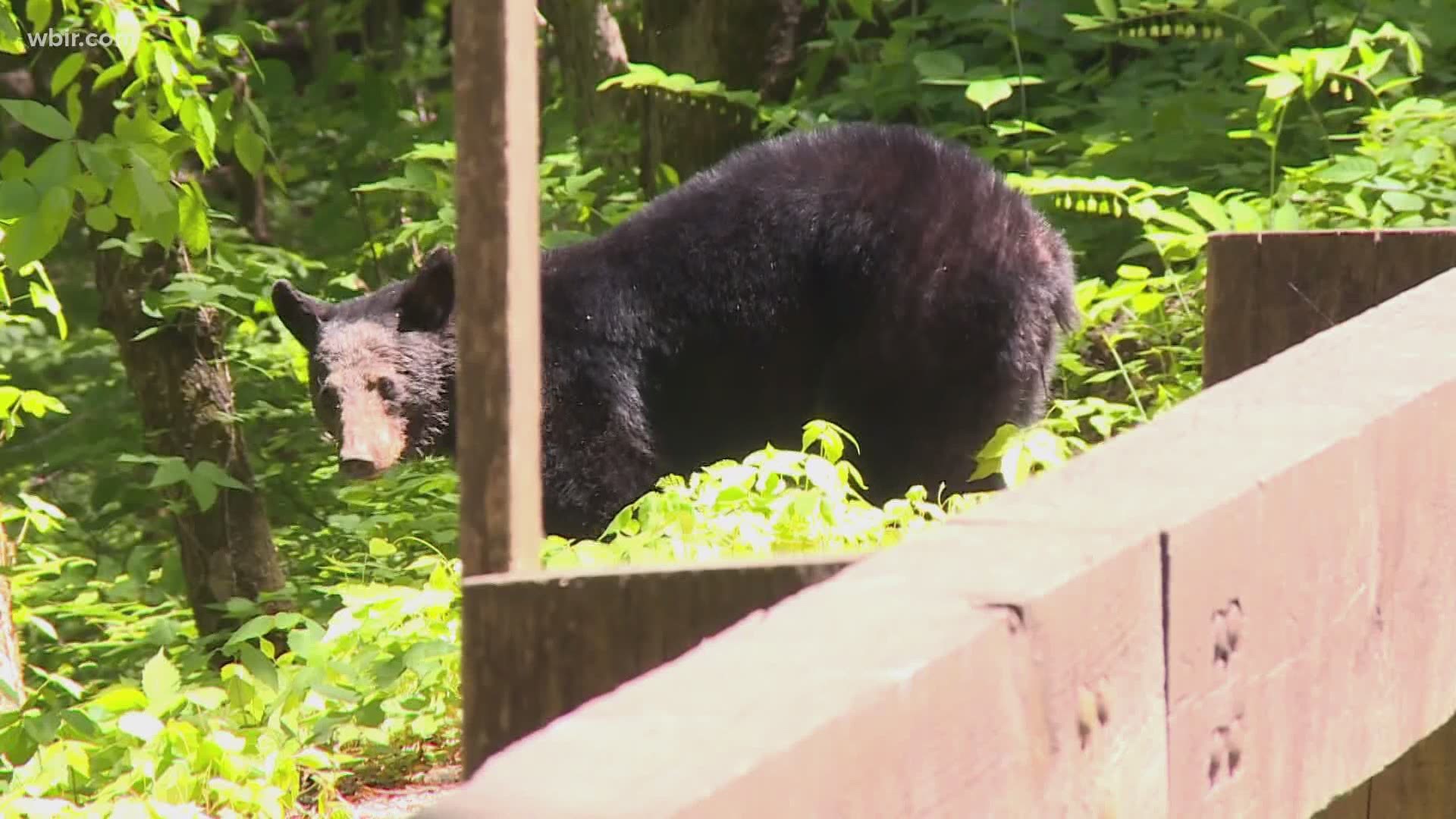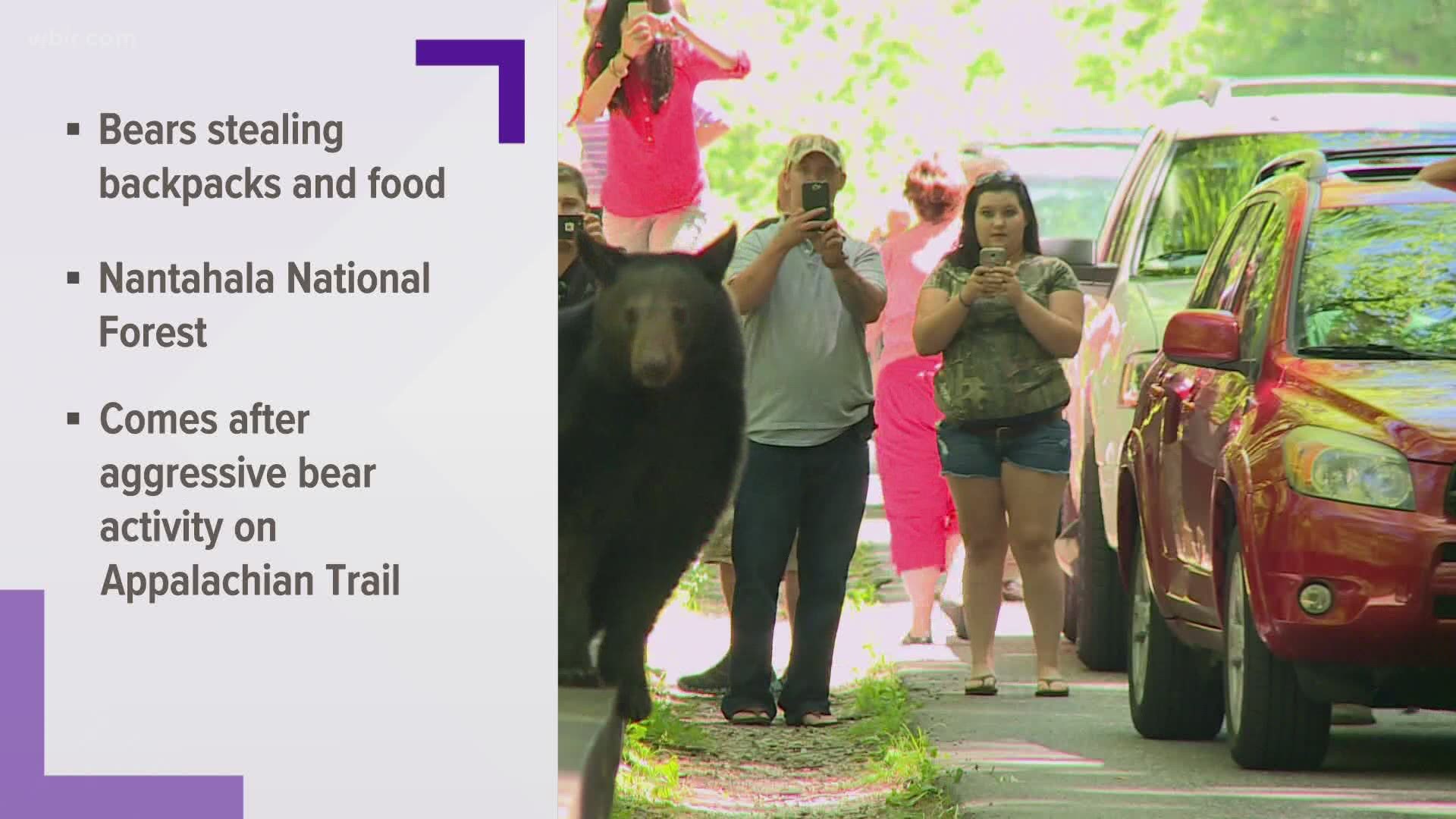SEVIER COUNTY, Tenn. — Rangers in the Great Smoky Mountains National Park cited a few visitors after discovering they fed peanut butter to a bear in the park.
"Feeding bears is like the worst thing you could possibly do," said supervisory wildlife biologist Bill Stivers. "It changes their behavior from a bear that's afraid of people to a bear that becomes food conditioned and starts approaching people. Then you have escalated human-bear conflicts."
Rangers learned of the incident after being given video of it happening. After investigating, they said the visitors confessed and were issued a citation on June 5.
"Our primary way that we hope to change and influence behaviors is through education," said park spokeswoman Dana Soehn. "We feel like we can reach a lot more people by helping them understand how we want them to behave whenever they encounter a bear so that they can keep themselves safe, other safe and the bears wild."
Rangers said the 100-pound male bear had been feeding on walnuts for several weeks along Cades Cove Loop Road. The bear began showing signs of being food-conditioned, which led biologists to suspect it had been fed by visitors.
A typical citation is $100 with an additional $30 fee, according to Soehn. However, that can increase if rangers mandate a court appearance.
"Depending on the the level of the incident itself, or if the person decides that they want to exercise the right to go to court, a judge can make the fines up to $5,000 or six months imprisonment or some combination of both," Soehn said. "There's a lot of discretion both on the assessment of the ranger and the level of the action that took place."
Experts captured the bear and tagged its ear before releasing it. Rangers are also using aversive conditioning techniques to scare bears away from frequenting parking areas, campgrounds and picnic areas. This includes using loud sounds from the road and shooting paint balls.
"They think the bears being punished every single time," Stiver said. "My work as the wildlife biologist is to protect bears and maintain that that natural wild behavior so they don't allow people to get close and throw peanut butter."
The saying goes: A fed bear is a dead bear. Bears' lives are put at risk when they lose their fear of humans or become conditioned to being fed by humans. Until summer berries ripen, many of their natural foods are scarce -- so they will seek any opportunity to feed, which includes scavenging through areas where hikers and campers dwell.
Park officials say visitors should always take precautions when observing bears to keep themselves safe.
The park offers the following tips:
- Visitors should observe bears from a distance of at least 50 yards and allow them to forage undisturbed. Bears should never be fed.
- While camping or picnicking in the park, visitors must properly store food and secure garbage. Coolers should always be properly stored in the trunk of a vehicle when not in use. All food waste should be properly disposed to discourage bears from approaching people.
- Hikers are reminded to take necessary precautions while in bear country including hiking in groups of 3 or more, carrying bear spray, complying with all backcountry closures, properly following food storage regulations, and remaining at a safe viewing distance from bears at all times. Feeding, touching, disturbing, or willfully approaching wildlife within 50 yards (150 feet), or any distance that disturbs or displaces wildlife, is illegal in the park.
- If approached by a bear, park officials recommend slowly backing away to put distance between yourself and the animal, creating space for it to pass. If the bear continues to approach, you should not run. Hikers should make themselves look large, stand their ground as a group, and throw rocks or sticks at the bear. If attacked by a black bear, rangers strongly recommend fighting back with any object available and remember that the bear may view you as prey. Though rare, attacks on humans do occur, causing injuries or death.
- For more information on what to do if you encounter a bear while hiking, please visit the park website at www.nps.gov/grsm/naturescience/black-bears.htm. To report a bear incident in the park, please call 865-436-1230. For more information about how to be BearWise, please visit www.bearwise.org.


